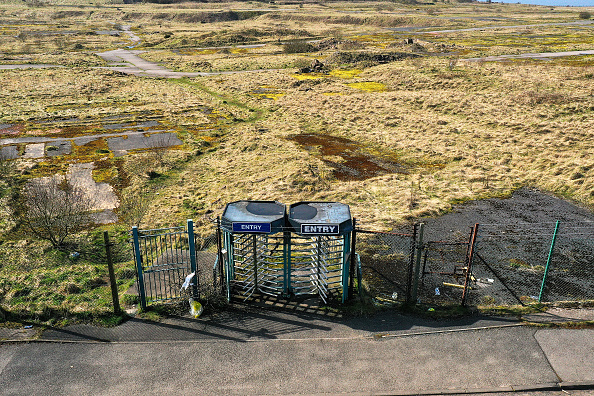Up in West Cumbria, the battle for coal has yet to find a winner

In West Cumbria, a long stretch of coast right by the green hills of the wealthy Lake District, people have been worrying about jobs for a long time. So when the plans for the first new deep mine since the 1980s were first announced, most locals rejoiced. Fast forward to today, the plans haven’t yet been approved. They have caused frictions locally and nationally.
Fourteen per cent of households in the area were living on less than £10,000 per year pre-pandemic. The unemployment rate for the North West, where West Cumbria is, was 4.5 per cent from November 2021 to January 2022, compared to 3.9 per cent in the UK as a whole. The prospect of investment in the region, even if in the form of a coal mine, has been broadly welcomed.
After years of languishing on the political backburner, Michael Gove might finally be ready to approve the Woodhouse Colliery. No conclusive answer has come from his department however, as the deadline for the decision lingers on the 7th of July.
The mine, which wouldn’t burn coal but mine coking coal used to make steel, is a divisive issue. At a national level, the Labour party is against the mine, with Shadow Business Secretary Ed Milliband saying it is at odds with Britain’s plans to be a “climate leader”.
But several local Labour councillors have come out in favour. Boris Johnson has been vague about his position before, claiming he doesn’t “like coal” but equally that the decision must fall to the local people.
The reality is, local people – certainly most of them – are fully in favour of the mine. For Thomas “Eddie” Dawson, a proud born-and-bred West Cumbrian, the issue is one of identity. His family worked in the West Cumberland coal fields for generations, and coal is something he knows and understands. He “wholeheartedly” supports the green transition – coking coal has a less damaging environmental impact than burning coal. And steel will be needed to build the infrastructure for wind turbines, solar panels and mini nuclear reactors, so better to make it here in the UK than import it from abroad, locals claim.
They support the coal mine because West Cumbria Mining has promised 80 per cent of the 500 well-paid jobs will go to local people. “They’ve engrained themselves in the local community”, says Conservative Mayor of Cumberland Mike Starkey. In an area that often feels forgotten by central government, these are the commitments that matter.
Critics, however, are sceptical of these promises. Many of these jobs are high level engineering positions, which are likely to end up in the hands of skilled workers from London or other big cities. Training locals takes time, and if there aren’t enough engineers available companies look for them elsewhere.
On the campaign trail for the North West Green Party for the upcoming local elections, Jilly Perry is constantly asked about the coal mine. That’s when the question turns truly political: local Labour, Conservatives and Lib Dem councillors have all voted in favour at some point, so “they can’t really use it as a political hot potato”. But at the last public inquiry, the Labour-led County Council declined to choose a side. This gives local Conservative politicians something to point their finger at.
The mine would be situated next to the Woodhouse housing estate, in the south of Whitehaven. This is a working class area with a very high child poverty rate. “What better way to alleviate and hopefully eradicate that poverty than by the introduction of well paid jobs on the doorstep”, says councillor Kevin Young.
But will these jobs still be there when these kids are ready to enter the workforce? The green transition has been set in motion, and investors are likely to put more money into clean steel production in the future. Then Woodhouse Colliery will be another sticking plaster solution, a badge allowing politicians to say they’ve brought new jobs into the region, without tackling the root causes of endemic poverty there.
Michael Gove still has time to think about his decision; but whatever conclusion he comes to, he will make some happy in the short term and leave some deeply disappointed in the long run.